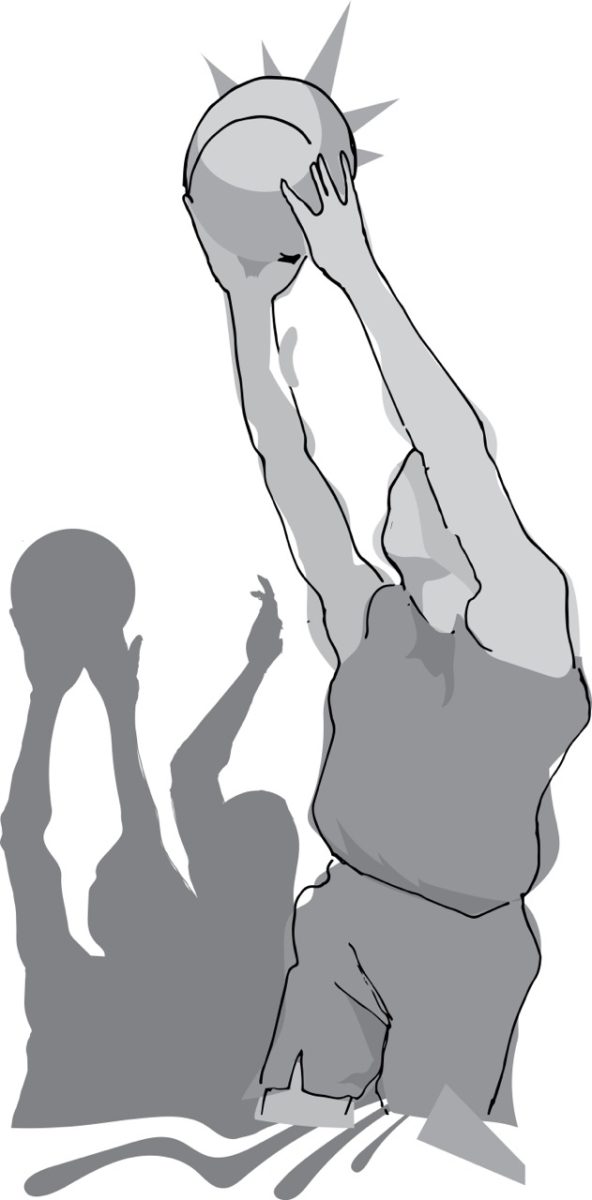I want to declare all-out war on a word.
And it’s not an easy word to wage a full-scale assault on, either: I’m not hoping to silence the overused mindless insults (the N-word, “gay,” “retarded,” etc.: although while we’re on the subject, grow up and find better insults already), nor am I hoping to exorcise annoyingly trendy catchwords from the 20-something vernacular (I’m done with “forevs” and “hella,” personally, but you can keep on using them to your heart’s content).
No, the word I’d like to see put to death is a much less obvious one: a silently malicious one-syllable villain who continues to wreak havoc on American political discourse and otherwise-intelligent discussions.
The word is “they.” “They” and “them” and “their,” really. I know, I know: You think it’s a pretty innocent little pronoun. The American Heritage Dictionary defines “they” as a pronoun “Used to refer to the ones previously mentioned or implied.” I’ll admit: It seems pretty safe.
But scratch a little beneath the surface. If you read on to the second definition, you’ll find that “they” is commonly used “to refer to people in general as seen in a position of authority.”
Bingo.
We use “they” to make groups. It is fundamentally a term of separation: This group is different from this group for these reasons. When we say “they” we are usually using our “position of authority” to keep one gigantic group of people under a collective umbrella.
This manifests itself most frustratingly in discussions of minority groups: race, class, gender, socio-economic standing, etc. In fact, I might argue that it’s unheard of to have a discussion about one of these things without the word “they.”
A few examples: In 1984, a 600-word article in The Christian Century on handicapped people used the word “they” (or a version of it) 20 times (one instance: “They and their families must learn to live with constant fragmentation and brokenness”); Last November, MSNBC aired a five-part series entitled “African-American Women: Where They Stand”; and at the Plenary Session of Whitman’s Second Annual Symposium on Diversity and Community the word was uttered more than 30 times, with nearly every lecturer saying it at least once.
These may all seem like unexceptional examples: What’s the big deal? So people use the word “they.” So what?
The big deal is that Americans are obsessed with categorizing. The ubiquity of the word “they” in discussions about minority groups demonstrates that we need all people to fit into social or psychological patterns so that we can analyze them better.
The problem is that we too often expect people to adhere too closely to what are supposed to be loose guidelines, not universal rules.
Last week, StarCom MediaVest CEO Renetta McCann revealed research that showed that by 2010, the annual buying power of America’s multicultural consumer is expected to surpass that of Caucasians. As a result, her agency has launched a full-fledged study of the “broad” African-American audience in a project called “Beyond Demographics.” The project is backed by BET.
Essentially, this project is about taking one “them” (African-Americans), and turning it into 12 “thems.” McCann’s research has separated all black people into 12 different categories: “backboners,” who include postal workers, nurses and bus drivers, making up 20 percent of the black population; “devouts,” who are the religious and modest non-consumers making up 12 percent of the black population; and 10 others, which remain unreleased. Each group is to be studied exhaustively so that BET (and ostensibly other television networks) can know what to schedule in their prime-time slots.
It’s a good marketing tactic.
The problem is that this kind of divisive categorizing too often extends outside the marketing world, and gets into our basic mindsets. Making generalizations is quick, easy, and is still widely accepted as legitimate even in liberal-minded circles. It’s just simpler for us to shove everything complicated into neat, orderly boxes (check a box for your race; gender; economic standing; father’s profession; mother’s highest level of education; the list goes on).
Race, for instance, is becoming a trickier and trickier subject as the American population shifts.
In “Brown: The Last Discovery of America,” Richard Rodriguez deals with the meaning of the word “Hispanic”: “There is no such thing as Hispanic blood. … Though I meet young Hispanics who imagine they descend from it.”
Hispanics are an Americanized race. The term exists because the U.S. Census decided it needed to exist in the ’70s order to create clearer categories: that is, it identifies Latin American individuals living in the United States regardless of race (i.e., Mexican people, Puerto Rican people, Colombian people, and a slew of others now fit into a nice, neat category). Rodriguez has a problem with the term because it lumps people together who have nothing in common. It allows Americans to simplify an issue that is too complicated to easily comprehend.
Although Americans continue to adopt aspects of “Hispanic” culture: food, certain words, bilingual instruction booklets: we neglect what has to be taken away to allow for this assimilation of cultures. We begin to see others as only belonging to “an ethnic group”: an “us/them” mentality, if you well: and our desire to celebrate diversity dissolves into a knee-jerk reaction to merely recognize difference. As Rodriguez puts it, “Only America could create Hispanics, Asians, Africans, Americans.”
And so America, despite its good intentions, continues to build racists, sexists, classists, homophobes, etc. with its insistence on categorization.
See, not all African-Americans want slavery reparations; not all women are going to vote for Hillary; not all handicapped people want their tax dollars to go towards making their public libraries more handicapped-accessible. Humans are unique: which is often a reality too easy to forget.
The first step to reclaiming our individuality, then, should be to put a mutual ban on this all-encompassing word, once and for all. If not for you, then do it for them.







